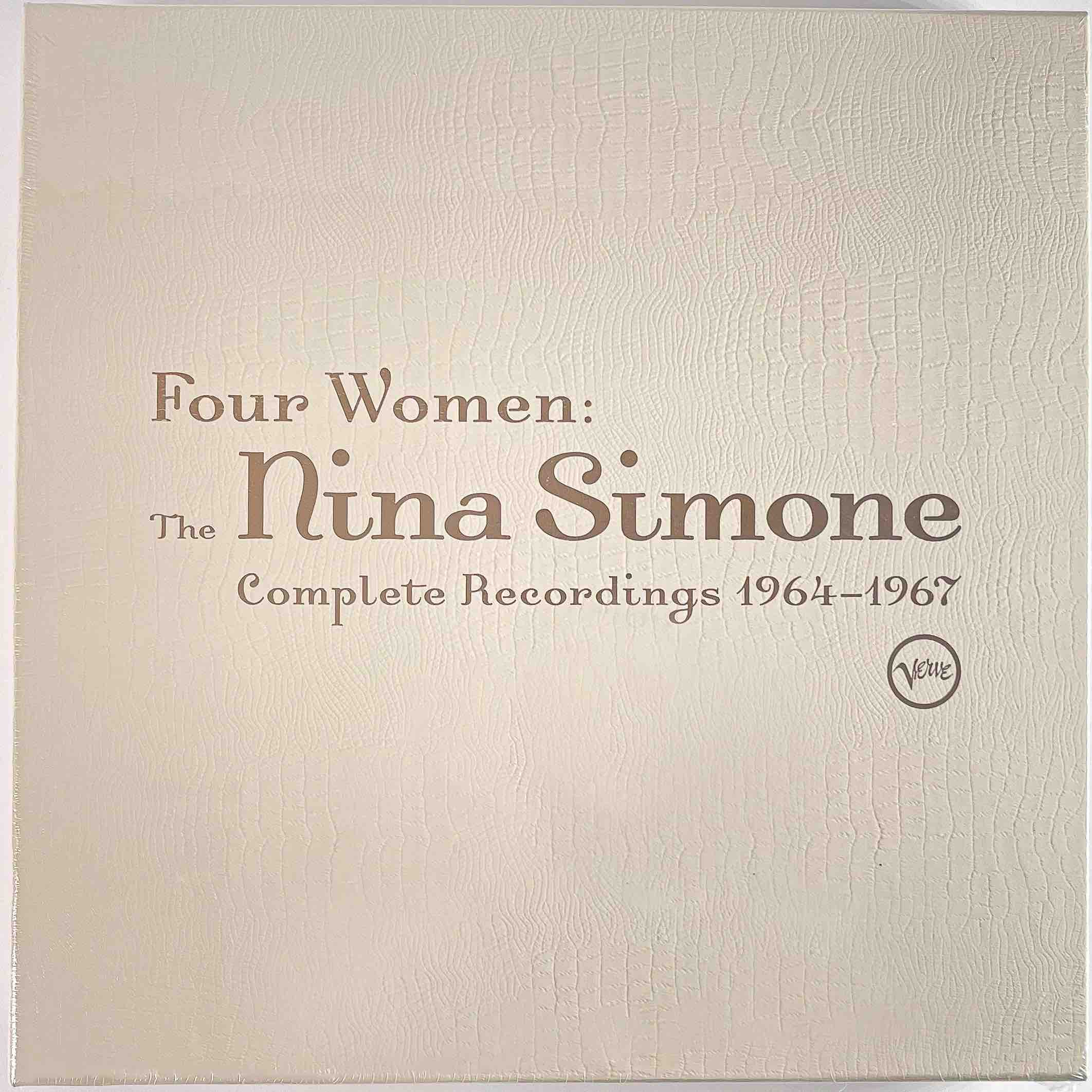Nina Simone
Four Women: The Nina Simone Complete Recordings 1964-1967
VERVE
If earlier Bethlehem and Colpix label days portrayed her intimately jazzy and frank folky side, and her late-’60s through mid-’70s run at RCA pushed her into colorfully funky blues, Broadway, and Beatles, it’s Nina Simone’s time at the Phillips label that would come to define everything sultry, soulful, and socially protesting about the vocalist, composer, interpreter, and activist. That includes the simmering, syncopated epic taken from the 1966 album Wild Is the Wind that gives this seven-album box its title, one that ripely displays the African-American story through the lens of four knowing, experienced women explaining their individual pains and passions in whisper-to-primal-scream detail.
Everything that defined Simone—mood-swinging music that would eventually inspire modern-day R&B and femme rappers—stems from these seven foundational albums, as her role as an innovative vocal and instrumental interpreter is borne within these volumes. Traditionals such as the minimalistic “Black Is the Color of My True Love’s Hair” and the circular “Sinnerman” are now Simone’s and Simone’s only, defined by her impressionistic piano and studied vocal tones. A rollicking take on Jimmy Cox’s “Nobody Knows You When You’re Down and Out” and the brassy siren’s call of “Feeling Good” from showmen Leslie Bricusse and Anthony Newley? Simone’s versions are the versions to beat. Who could out-Screamin’-Jay Screamin’ Jay Hawkins himself on his “I Put a Spell on You,” and rival Dylan’s snarl on “The Ballad of Hollis Brown”? Simone. Even her bluesy bawl on “Don’t Let Me Be Misunderstood” beats down Eric Burdon.
Still, it’s Nina’s own writings from this period that boost her legend and make this box a necessity. “Four Women” came from Simone, body and soul, its richly composed righteous indignation, Biblical blues, and feminist force coming out in one luscious, loud mouthful. On 1967’s High Priestess of Soul, the likes of “Come Ye” and “Take Me to the Water,” though done up in broad, big-band stylings, show off Simone’s up-close-and-personal writings on redemption and gospel traditionalism. From her first album with Philips, ’64’s Nina Simone in Concert, there’s “Mississippi Goddam,” the composer’s process-shaping classic. Written and sung in pure protest immediately after the 1963 Alabama Church Bombing that killed four young girls, the vocalist tears into the radically politicized moment with disgust and rage.
Like the titular four women within the legacy of slavery that Simone gave life to, the young Black girls of “Mississippi Goddam” are given a face and a sound by Simone so that we never forget—not the crimes of hate nor how Simone channeled the pain those crimes inflicted into something vividly alive and soulful.









